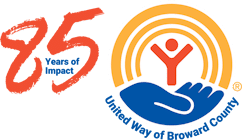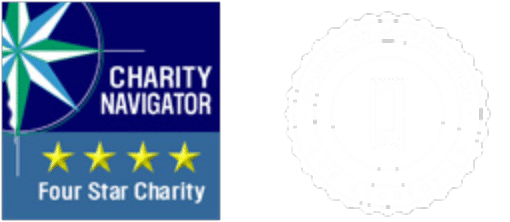United Way’s 2025 ALICE Report Identifies the Crisis Happening Now in Our Community
by Kathleen Cannon, LCSW, President and CEO at United Way of Broward County
Across Broward County, hundreds of thousands of people work in jobs that keep the community running — examples include cashiers, healthcare workers, delivery drivers, childcare providers, law enforcement, and laborers. These productive people are essential to the success of our economy, yet many live in financially precarious circumstances, struggling to afford basic necessities despite working full-time.
At United Way, these individuals are known as ALICE — Asset Limited, Income Constrained, Employed. They are people who earn salaries above the federal poverty level but still fall short of financial stability. The ALICE population spans different races, ages, and family structures. Many are single parents, young professionals, or elderly individuals who have worked their entire lives.
Through the 2025 ALICE Report, United Way’s teams have compiled extensive data and then analyzed how it reflects the financial conditions of ALICE households. This data ranges from national data to specific details by each county across the U.S.
This year’s ALICE Report reveals the growing financial hardships faced by these workers. In Broward County alone, 37% of households qualify as ALICE, and another 13% live in poverty — which means 50% of all households in Broward County are financially insecure and unable to afford basic needs like housing, healthcare, and childcare.
One of the alarming findings in this year’s ALICE Report is the disparity with cost of living. For ALICE households, financial hardships are both about low wages and about the rising cost of living. The median income for households in Broward County is $75,343. Furthermore, the cost of living continues to rise, making it difficult for ALICE families to keep up.
Housing prices have skyrocketed, childcare expenses have become unaffordable, and healthcare costs continue to climb. The report highlights how many ALICE families are forced to make difficult choices, such as deciding between paying rent or having quality childcare.
According to the 2025 ALICE Report, financial insecurity is widespread as 50% of households in the state of Florida fall below the ALICE threshold. The disparities in Broward County are particularly stark:
- 72% of households headed by people under age 25 are below the ALICE threshold
- 71% of single-female-headed households with children are below the ALICE threshold
- 63% of households headed by people age 65 and older are below the ALICE threshold
- 60% of Black households are below the ALICE threshold
Beyond financial strains, ALICE households experience significant emotional and psychological stress. Many workers feel trapped in ongoing cycles of poverty or near-poverty, working tirelessly but never getting ahead. The 2025 ALICE Report makes it clear that addressing financial hardship requires more than temporary assistance — it demands systemic change.
For more than 85 years, United Way of Broward County has been on the frontlines of systemic changes to help residents overcome many complex challenges. Our work provides resources and opportunities to help people at any stage of life rise and thrive.
Our United Way recognizes people in ALICE households are the backbone of Broward’s economy, and we are extremely focused on supporting people through a wide range of programs and services. These services often are related to financial empowerment, education, and access to essential resources, and some examples include:
- Financial stability programs: Our United Way offers financial literacy workshops and coaching to help ALICE families manage their budgets, reduce debt, and build assets for long-term financial security.
- Affordable housing initiatives: Our United Way collaborates with local organizations to expand affordable housing resources and provide rental assistance programs.
- Healthcare services: Our United Way funds access to health programs, providing free or low-cost medical services, including mental health support and preventative care.
- Childcare and education support: Quality childcare and education are essential for working families. United Way invests in early childhood education programs and after-school care to ensure children receive the support they need while their parents work.
- Emergency assistance: United Way’s 211 Helpline connects ALICE families with emergency resources, including food assistance, support for utilities, and crisis intervention services.
- Advocacy and policy efforts: Beyond direct services, our United Way advocates for policy changes that benefit ALICE households. Our Public Policy Committee’s 2025 Legislative Agenda includes initiatives to increase affordable housing, expand behavioral health programs, and improve education funding.
One stellar example of our impact on ALICE households is through our Project Lifeline, which provides ALICE households across our county with access to healthy foods. Since its inception in 2009, United Way teams and volunteers with Project Lifeline have distributed more than 18 million lbs. of food to over 7 million people throughout Broward County. In the past year, we have served nearly 500,000 individuals and families.
By addressing key challenges such as housing, healthcare, food distribution, and education, United Way of Broward County is helping hundreds of thousands of people build a better future.
You too can be a force for good in Broward. Some ways you can make a difference are by:
- Making a donation
- Volunteering with one of our programs or at one of our events
- Getting connected to other civic-minded people through one of our Affinity Groups or one of our committees
Your support through time, skills, talents, and resources is essential to the well-being of our entire community. Together, let’s continue to build a stronger Broward for all.

